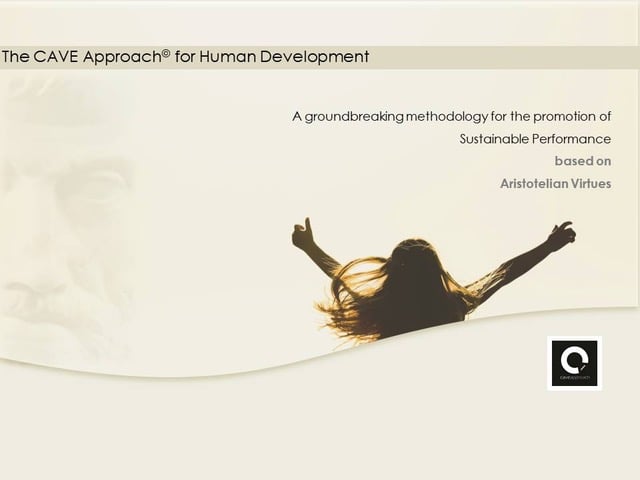Program Goals
This online training introduces participants to the CAVE Approach© for Human Development, and its application in Project Management.
This is a next-generation virtues-based approach for self-management and personal leadership that serves performance improvement in every context. It helps people to understand how managing their core individual characteristics may shape their patterns of thinking and acting so that to consistently promote their effectiveness and efficiency to bring desired sustainable results on a personal, group, organizational and societal level.
The approach is based on Aristotle’s Ethical Theory which is greatly supported by contemporary findings in neuroscience, psychology, evolutionary biology, anthropology and other disciplines. The CAVE Approach offers a pioneering methodology for the systematic and structured development of the Aristotelian virtues in the modern world to support a new-age management; management that serves sustainable professional results while promoting individual happiness, common good, and sustainable development of humanity.
The CAVE Approach© online training aims to:
- Introduce the Aristotelian Ethical Theory as a socially responsible model for state-of-the-art performance management.
- Help participant clarify the difference between effective, efficient and sustainable performance.
- Introduce participants to the Aristotelian virtues as standards of sustainable performance applicable in every setting of personal and professional life.
- Provide participants with the opportunity to review their own individual virtues profile through a CAVE Assessment, and receive personalised feedback on it.
- Help participants with improving individual and group performance through the management of their own virtues’ discrepancies.




